Case Study – Holly Dore’s Work Experience at Superior
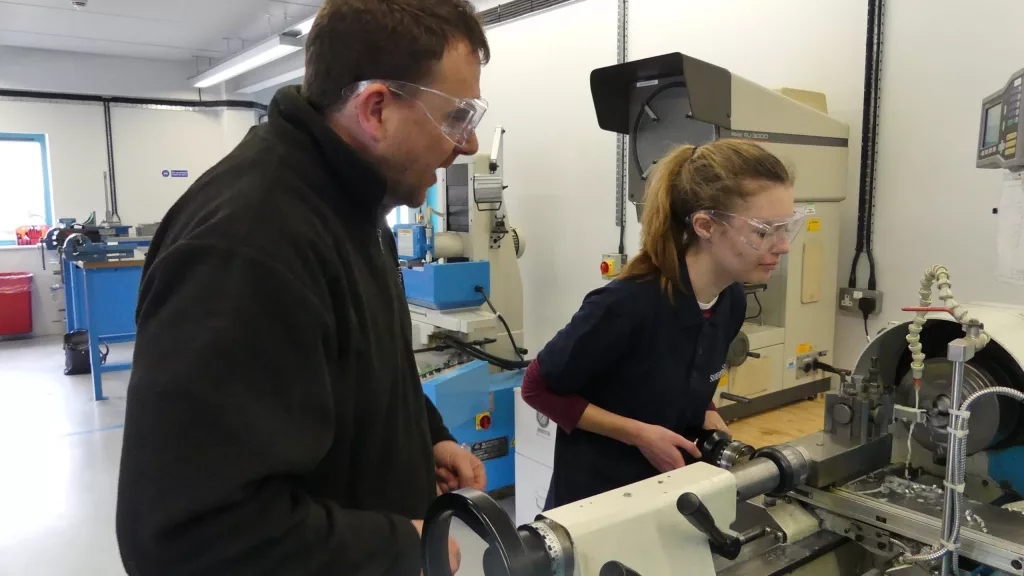
Work Experience : Holly Dore, 17, from Blandford, is set to become an apprentice in September at Superior, based in Ferndown, Dorset. She is currently studying for her A-levels in physics, biology, chemistry and Level 3 Core Maths at Queen Elizabeth’s School in Wimborne. Before signing up for an apprenticeship, she joined the team at Superior, a leading manufacturer of high integrity o-rings and seals, for work experience so that she could find out more about the company. Q: When did you start your work experience at Superior? A: I had three days of work experience in 2018 and then came back for three more days in April 2019. Q: How did you hear about Superior? A: At our school we have an apprenticeship fair, so there are loads of different companies there. I went round to speak to the different companies and the Superior team were really nice. I asked if they offered work experience and they said that they did. Superior also runs The QEube event at my school’s annual ACE Festival, which is a sports and charity event. Q: What did you do on your work experience? A: Last year I made a brass g-clamp and a g-clamp screw, and then I made several screws of different types to see which one is best. This year, I was involved in solving a real engineering problem (Holly was involved in solving a real engineering problem, it wasn’t set up – this was a real scenario where Holly made a part to support one of our manufacturing facilities) where parts were getting stuck on a sensor. We made a small acrylic guard for the machine, which was then given to the quality team to test. We made it using the CNC mill and tested it where we realised that it needed another groove and so we re-wrote the programme that I drew for the machine. We also made a an O-ring jig using a manual lathe. I was using the programme on the computer for the CNC lathe, so you draw the programme on the computer and then it will make the part for you. The training manager has been helping me during my work experience, I got to walk around and see what other people were doing in different departments. I am proud of everything that I have done, as I wouldn’t get to do any of it normally. Q: Would you recommend work experience to other young people? A: I think work experience is really valuable. Before I came to Superior, I knew that I wanted to work in engineering and I’ve always been interested in science, but it’s quite a broad term, so I wasn’t sure what that entailed and what parts I would enjoy. Now that I have finished the work experience, I realise that this is something that I really want to do. It’s good fun. Q: In September, you will join Superior’s in-house Academy. What made you choose to go onto an apprenticeship? A: An apprenticeship made more sense to me because you can gain a degree with Superior and you can learn practical skills rather than just sitting in a lecture hall at university, and you get to do it within a company. Superior has its own in-house Apprenticeship Academy on-site, offering apprenticeships to students as young as 16. It gives apprentices the chance to learn about engineering, science and manufacturing and all apprentices are given the opportunity to gain a degree. Manufacturing & Engineering Magazine | The Home of Manufacturing Industry News
Digital Maturity in the Manufacturing Industry

Digital maturity is a term which is being utilised increasingly in the manufacturing industry as many organisations look to prepare for digital transformation. Usually based upon 15 competencies or criteria, manufacturing organisations are looking to a wide range of elements including communications planning, audience insight, digital capacity and budget, amongst other things, to measure their digital maturity. As Industry 4.0 sees computer-programmed automation and digital technologies such as AI and robotics become ever more intertwined in everyday operations, a clear understanding and implementation of digital maturity is regarded as essential. Clare Darlison, director of Idhammar Systems explains why manufacturers must take digital maturity seriously and how they can work towards achieving it. Showcase a commitment to digital Without commitment to change, you will achieve very little. According to Deloitte, leading organisations on the path to digital maturity are measured not only on their commitment to digital infrastructures but also on their readiness to adopt advanced technologies, including AI, VR and robotics, and see this seamlessly integrated in business operations. There are clear cases of manufacturers doing this particularly well. For example, in 2019, Siemens opened its fully refurbished ‘Digital Experience Centre’ to illustrate practically how its industrial customers can successfully embark on a digital transformation journey and achieve success. According to Siemens itself, this displays operational examples of transformative digital technologies which can help to enhance productivity, support flexible manufacturing objectives, optimise performance and even open up new business models. In showcasing this to the world, Siemens is helping to lead the way whilst also demonstrating its own commitment to digital, providing an aspirational example. Increase profits According to McKinsey & Company, manufacturing digitisation could boost heavy industry profits by three to five points, but only if organisations make new technologies work at scale. Frontrunner organisations who strongly believe in the value of digital when it comes to business processes are most likely to see increased profit at scale initially. Additionally, as technology is set to underpin digital enterprise within the manufacturing industry, the ability to understand its importance will prove vital to business strategy that not only enhances profitability but ensures results with longevity. Introducing a digital workforce As organisations move towards a digitally-led approach to operations with 87% of UK manufacturers stating that they are ready to invest in new technologies that will boost productivity, we expect to see the robotization of important processes either within production, or certainly linked to it. Not only can this help streamline processes, but it will also mean than operations can continue on a 24/7 basis without the need for human interaction, helping to bridge the digital and physical loop within the process. According to Tech Native, not only can this help to automate processes to ensure efficient production levels but it can also free up employee time to focus on new, less manual tasks that will deliver greater value to the business. Better insights Access to real time data can help provide actionable insights, helping organisations to make more informed, game-changing decisions. For example, understanding Overall Equipment Effectiveness (OEE), which can impact your organisation’s bottom line and productivity levels. By making the most of what digital can offer in terms of analytics, not only does this allow for increased analysis to help you to analyse your existing workflows, but it can help you to refresh your systems and processes whilst committing to scheduled maintenance. Digital maturity is becoming essential for manufacturing organisations and ultimately, it’s very much a personal decision as to whether they want to fully embrace digital and prepare for the ever-evolving business landscape. Unfortunately, only 20.7% of organisations surveyed by Deloitte rated themselves as highly prepared to address the business models Industry 4.0 brings. However, we predict that stragglers will soon look to introduce a more forward-thinking approach which in turn, will require an upskilled workforce and certainly one that is digitally confident. I predict that this will of course involve the breaking down of barriers within the workforce, seeing cross-department collaboration and closer working relationships to fully achieve digital maturity that produces valuable results. Manufacturing & Engineering Magazine | The Home of Manufacturing Industry News
UK Export Growth Slows Amid Global Trade Tensions

Growth in UK manufacturing export orders weakened to a three year low in Q1 2019, according to the latest Lloyds Bank International Trade Index, compiled in partnership with IHS Markit. In the first three months of 2019, the Index posted a reading of 50.4 for new manufacturing exports, down from 50.8 in Q4 2018. A reading of above 50 indicates growth, while one below 50 signifies contraction. Despite the drop, the number of UK manufacturers exporting reached a record high, in Q1 2019, of 81.3 per cent of firms participating in IHS Markit’s Purchasing Managers (PMI) Survey. Meanwhile, new overseas services sales dropped at the sharpest rate since the index began in 2014. The index posted a reading of 46.8 for services exports, a fall of two points since the final quarter of last year. Consumer goods bright spot amid weakest rise in manufacturing exports since 2016 Despite Q1 2019 seeing UK manufacturers continuing the longest period of sustained new export order growth since 2008, it was the weakest rate of growth since Q2 2016. The weak rate of UK growth coincided with a drop worldwide, with data showing the largest downturn in international trade volumes for more than six years during Q1 2019. Asia and Europe posted particularly sharp declines in manufacturing export sales. Consumer goods was the best performing export category for UK manufacturers in the first three months of 2019, posting a reading of 54.4. Textiles and clothing was the strongest performing consumer goods sub-category, posting 63.1, its highest reading since 1997 and significantly up from 55.4 in Q4 2018. But the strong outing for consumer goods was offset by a drop in new export orders for intermediary goods (semi-finished goods used to produce other products), which posted a reading of 47.1. US demand for tech offers respite amid decrease in service export sales UK service exports fell two points in Q1 2019 to 46.8. This is the second consecutive quarter of contraction of exports for the UK services sector and follows a four-year run of growth. Driven by demand from the US and Ireland, technology services exports bucked the trend rebounding to 51.0 from 45.7 in Q4 2018. Accounting for this, firms cited that Sterling’s relative weakness had positively affected their competitiveness. Global slowdown in economic growth reduces opportunities for UK exporters Amid the global economic slowdown, growth in international demand for British goods and services slowed in Q1 2019, from 53.1 in Q4 2018 to 52.5. During the first quarter of 2019, economic growth was seen in key UK export markets, with the UAE posting its highest reading since the end of 2017 (61.7). The US posted a reading of 54.8 (vs. 54.6 in Q4 2018), thanks to an uptick in services sector activity. This positivity was offset by weaker economic growth in other export markets. Namely, subdued growth in China continued in Q1 2019 (51.5 in Q1 the same as in Q4 2018), largely thanks the manufacturing sector output plateauing. Closer to home, there was growth in Spain and Italy in Q1 2019, while demand conditions in France, the Netherlands, Ireland and Germany weakened thanks to a downturn in manufacturing outputs. Conditions in Germany have spread to Poland and the Czech Republic, where sharp contractions in manufacturing growth were measured. Pressure on UK freight capacity increases amid historic stockpiling The UK manufacturing PMI index for stocks of purchases increased by over 11 points from the end of 2018 to 66.2 in March reaching a 27 year high. Further research from Lloyds Bank analysing just over 100 of the UK’s largest publicly traded companies showed a nine per cent rise in the levels of stock held, worth over £5 billion.
Biotechpharma Expands Manufacturing Capacity
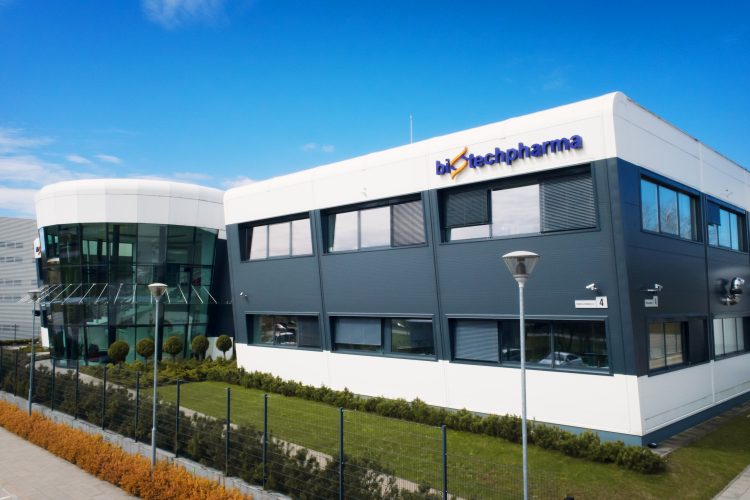
Further expansion has been announced by Biotechpharma UAB, a leading biopharmaceutical contract development and manufacturing organisation (CDMO), of its fermentation capacity to 5,000 L, along with an additional state-of-the-art process development laboratory, investing more than €50 million in the expansion. “The expansion comes amid growing global demand for flexible and responsive outsourcing partners that are able to support the full product lifecycle, from upstream and downstream process development and optimisation to GMP manufacturing of drug substance and formulated drug product,” said Dr Vladas Bumelis, Chairman of the Board. With the new capacity, Biotechpharma will be able to achieve its goal of becoming a single-source CDMO capable of supporting its worldwide customers with a full range of development and manufacturing services to support clinical and commercial manufacturing. “We are thrilled to announce this latest expansion of our infrastructure, as it will allow us to better support our customers’ biological development programmes with quality, speed and flexibility of service,” added Giedrius Žunda, CEO of Biotechpharma. Located at the company’s site in Vilnius, Lithuania, the new European plant will contain a new line of bioreactors for microbial fermentation at 5,000 L scale and the necessary equipment for downstream processing operations. Flexible facility design will also allow for increased mammalian cell culture production capacities in addition to the already existing two lines of 1000 L and 2000 L scale for mammalian cell production, both equipped with single-use bioreactors. Completion of the plant, which should be operational in Q4 2020, will result in an increase in Biotechpharma’s volume capacity by nearly a factor of two. “With this latest expansion and plans for continued growth, we are better positioned than ever to meet the growing global demand for these specialised capabilities – and to become a fully integrated biopharmaceutical CDMO,” concluded Frank Ternes, CBO of Biotechpharma.
MCMT Holds Largest Career Day
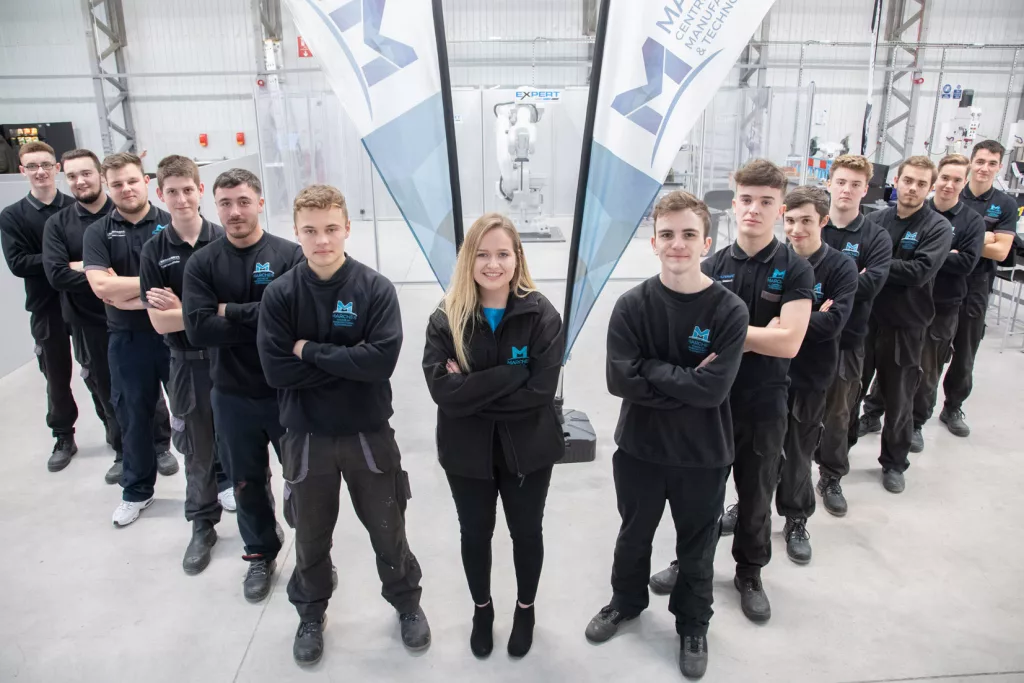
Shropshire’s largest dedicated career event for vocational learning in engineering and manufacturing is set to take place later this month. The Marches Centre of Manufacturing & Engineering (MCMT) will host a special day for young people and mature learners to explore the latest apprenticeship opportunities currently available in the county. Held on April 23rd between 10am and 3pm, the interactive event will assemble a large collection of employers looking to recruit future staff, as well as giving visitors a chance to look around the 40,000 sq ft training centre on the Stanmore Industrial Estate in Bridgnorth. There they will find over £4m of technology, including the latest metrology, a dedicated CNC zone, robotics and a recently installed electrical cell. “This is a perfect opportunity for local people to come down and see what an apprenticeship can offer them– and better still it’s all under one roof with numerous firms taking part, including Engineering Technology Group, Hyfore, and Guhring,” commented Matt Smallwood, Centre Manager at MCMT Shrewsbury. “We have over 40 different part and full-time Trailblazer apprenticeships currently available, ranging from machinist and mechatronics to a soon-to-be launched Heritage technician course that will look to replenish dying craft skills in automotive.” He went on to add: “Apprenticeships are a great way to set-out on a career path in industry that could lead to a good salary, international travel and the chance to design/make things that can change the way we all lead our lives. “And this isn’t just an opportunity for young people. We are also seeing an increase in older people choosing to use an apprenticeship as a way of retaining for a career in a different sector.” The Marches Centre of Manufacturing & Technology is an employer-led consortium of Classic Motor Cars, Grainger & Worrall, Salop Design & Engineering and In-Comm Training. It operates two state-of-the-art facilities in Bridgnorth and Shrewsbury and was set-up to help bridge the skills and competency gaps found in local industry, providing apprentices and thousands of upskilling opportunities between now and 2020. This is the first time it has put on a dedicated Careers Day and trainers will be on hand to discuss courses on offer, whilst a number of apprentices will give a first-hand insight into learning at MCMT. Manufacturing & Engineering Magazine | The Home of Manufacturing Industry News
British Manufacturer Refurbishes Australian Machinery
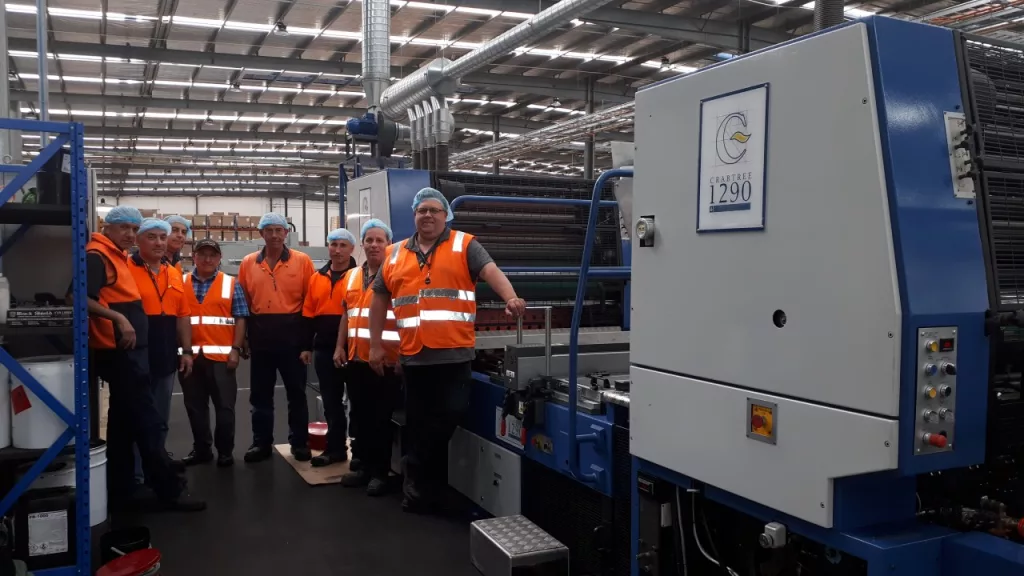
British Manufacturer Refurbishes Australian Machinery : Crabtree, a Gateshead-based manufacturer of metal decorating equipment has recently completed a contract for an Australian food and beverage packaging company. Providing surveying and decommissioning services on a second-hand tin and aluminium packaging machinery, the manufacturer worked on behalf of Interpack following its purchase from the original owner in New Zealand. “We have developed a close relationship with Interpack over the course of this project – which began from a short conversation and ‘just an idea’ – and are delighted to have supported the company on this initiative. The project has once again shown that our experienced team have the knowledge to successfully develop solutions that can optimise equipment of all ages, in the field. We look forward to continuing our work with Interpack through the provision of technical support, parts and training,” said Alan Rutter, senior director at Crabtree. Once the work was completed, it recommissioned the machinery and put it into production at Interpack’s site in Australia. Moreover, Crabtree also provided training in production to Interpack’s staff. “From the initial decommissioning and commissioning stages Crabtree supported all aspects of the refurbishment and rebuild. We put Crabtree to the test with ordering new parts during the project and the response time was fantastic, right from the service desk and administration through to the machine shop and despatch,” added Jason Jones, plant manager at Interpack. Manufacturing & Engineering Magazine | The Home of Manufacturing Industry News
Kubota Unveils Prototype Mini Excavator
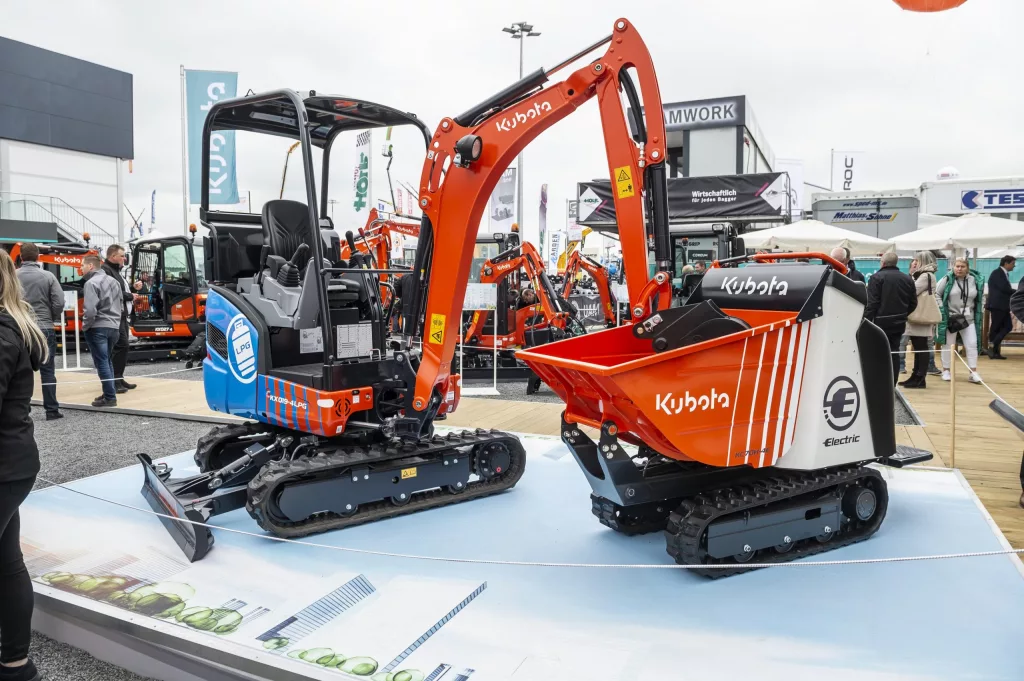
Kubota, a leading manufacturer of construction machinery, has announced the reveal of the KX019-4 LPG (Liquid Petrol Gas) mini excavator prototype. This model can run on LPG and is powered by a next generation Kubota Spark Ignition series engine. The new KX019-4 LPG makes it possible for users to work in emission restricted access areas such as cities applying diesel-bans, and also generates less noise emissions. Using the industrial standard gas bottles available everywhere, the machine is easily and quickly refuelled by replacing the bottle. The machine is equipped with a reserve tank (gas accumulator) so that the operator can notice before the gas bottle becomes empty. The performance characteristics of KX019-4 LPG is exactly the same as the diesel powered KX019. The excavator’s undercarriage is variable, which allows operators to enter into areas with less than a metre of access. This machine does not compromise on the level of stability and security required due to an enlarged lower frame. Furthermore, the working range of KX019-4 LPG provides an operational amplitude and guarantees a maximum digging depth of over two and a half metres which is sufficient for urban applications. The KX019-4 LPG has been unveiled at Bauma, the world’s leading construction machinery trade fair in Munich. Along with in market testing of this prototype model, Kubota will continue to research into alternative fuelled solutions. “We are delighted to be unveiling Kubota’s latest solution for urban site managers and workers who are required to respond to the recent anti -diesel restrictions, in form of the KX019-4 LPG at Bauma. The development of this model is the answer from Kubota to the current anti-diesel trend, in which economy, practicality and environmental issues are all integrated. This machine, powered by the Kubota SI engine, will bring the most productive solution to urban work sites without having a considerable impact on the investment, or loss of productivity due to the refuelling time, while delivering high performance and quality of ‘Kubota’. We are looking forward to receiving customer feedback on the stand at Bauma,” commented Keigo Watanabe, Vice President Sales and Marketing Business Unit, CE Kubota Holdings Europe B.V. Manufacturing & Engineering Magazine | The Home of Manufacturing Industry News
Green Light to New Automotive Initiative
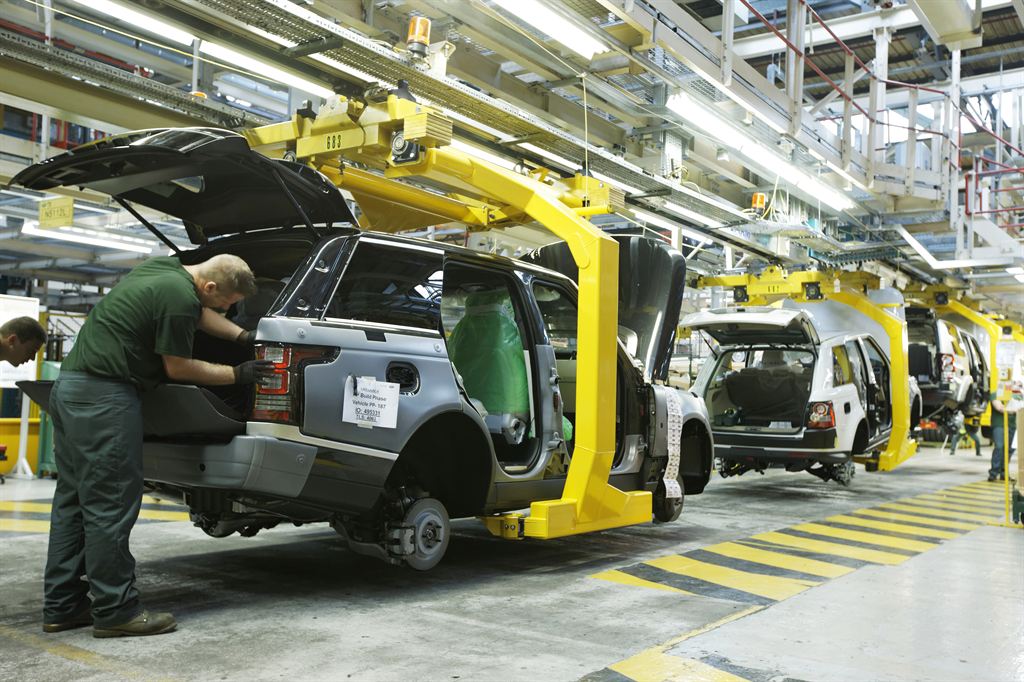
The selection of the National Manufacturing Competitiveness Levels (NMCL) programme, which will deliver the government’s national supplier competitiveness and productivity improvement initiative, has been announced by the Department for Business, Energy and Industrial Strategy (BEIS). Designed to improve competitiveness, raise workforce capacity and increase productivity of UK manufacturers, NMCL will be boosting the nation’s exports and economic growth. Led and match-funded by industry, and with the backing of 25 of the UK’s largest manufacturers, NMCL has been jointly developed by the automotive and aerospace sectors for application across all areas of manufacturing. Delivered by SMMT, NMCL Automotive is designed for the automotive sector and will make use of the £16 million of government funding to develop sustainable and internationally competitive UK supply chains. The new NMCL approach has already been successfully piloted by companies in the North West of England. NMCL is designed to help manufacturers of all sizes and stages of development understand how competitive they currently are and develop the specific business capabilities they need to boost their performance. The programme includes an in-depth competitiveness assessment based on company capabilities and the views of key customers. This data is then applied to investment decisions across six areas of competitiveness; quality, cost, delivery, flexibility, products/technology and customer experience. Projects are tailor-made for each manufacturer and focus on boosting competitiveness, increasing ‘value-add’ and winning more orders. “This announcement is a shot in the arm for the UK’s automotive industry in general and the supply chain in particular. NMCL is a central part of the Government’s Industrial Strategy and the sector deal for the industry, offering a proven way for business to achieve competitiveness. Coming at a time of considerable upheaval, it is important that all manufacturers are alert to the technological, market and trading changes that are occurring and take the right steps to ensure they are not just viable but globally successful in the future,” said Mike Hawes, SMMT Chief Executive. NMCL projects will typically last from six months for smaller initiatives to up to three years for entire business transformations. NMCL’s approach is also ideally suited to other manufacturing sectors such as rail and defence. Companies are invited to declare an initial expression of interest in participating in NMCL by completing a short form on the NMCL website.
Pret’s New Menu Packed with Vegan Options

Pret, the high-street coffee shop, has just announced its biggest menu shake-up so far with the launch of 20 new recipes on April 9th to reflect the UK’s changing consumer tastes, and 8 of the new options are suitable for vegans. Inspired by food development trips around the world and evolving consumer tastes, Pret is introducing a variety of new ingredients from smashed avocado to chilli salt and roasted chestnut mushrooms which have been roasted in a sticky tamari, miso and brown sugar marinade to give a delicious umami flavour to two new vegan dishes. Vegan options Vegans looking for breakfast on the go will now find Coconut & Berries on Pret’s new gluten-free bread (£3.25) which features a thick layer of coconut yoghurt dairy alternative, Pret’s five berry compote, fresh blueberries and a scattering of toasted coconut chips. There’s also an Almond Butter & Berry Bircher (£2.35) with coconut yoghurt, shredded apple and almond butter, berry compote and caramelised pecans to put a spring in your step in the morning. If you want to add a bit of sunshine to your morning then you’ll enjoy the Tropical Bircher (£2.99) made with gluten-free granola, coconut yoghurt, mango and banana sunshine smoothie, passionfruit juice, shredded apple, diced fresh mango and coconut chips. Those looking for a nutrient hit at lunchtime can tuck into the Asian-Style Veggie Box (£4.50) which is packed with cos lettuce, long-stem broccoli, sweet roasted mushrooms, black rice, edamame beans, pickled cabbage & carrot and sesame seeds and served with a zingy green dressing. Fans of mushrooms and avocados will love the Roast Mushroom & Smashed Avocado Pot (£2.99) that combines smashed avocado with sweet roasted mushrooms, diced mango, pickle cabbage & carrot and edamame beans. Lunch options will soon boast a Humous & Chipotle Wrap (£2.99) featuring a generous dollop of humous with spicy chipotle ketchup and fresh coriander topped with sliced red peppers, crunchy carrot & mooli slaw, pickled cabbage and carrot and spinach. Gluten-free For the first time ever, Pret will be offering gluten-free bread on the menu. The company couldn’t find a gluten-free bread they were proud to sell, so have instead developed their own recipe that combines oat, teff, buckwheat and quinoa flours, with millet, red quinoa, sourdough and a dash of treacle. Vegans can enjoy a slice of this soft, flavoursome bread topped with Pret’s hand-smashed avocado (£3.25). Manufacturing & Engineering Magazine | The Home of Manufacturing Industry News
Manufacturing Site Acquired for £6.5M

Manufacturing Site Acquired for £6.5M : Highcroft Investments has acquired a 111,000 sq ft maintenance, research and development facility in Llantrisant for £6.5 million. The firm bought the 984-year leasehold for the site, currently occupied by British Airways Avionics Engineering, from Rockfleet Holdco 1 Sarl. A complex of three buildings is part of the property, which provides a mixture of office and workshop space, together with a development site, on a 20.67 acre site. The current occupier’s lease runs until 2024 and produces an income of £805,011 per annum. The acquisition was made from existing cash reserves and debt facilities. “This investment provides a strong income yield for our shareholders plus the opportunity of further enhancement in the future when considering the passing rent and capital value at just £7.25 and less than £60 per square foot respectively,” said Chief executive at Highcroft Investments Simon Gill. “This is a very accessible location which has attracted major occupiers such as the Royal Mint, the Welsh Blood Service and the Royal Glamorgan Hospital, which are on neighbouring sites, and we expect this area to witness further growth,” Simon added. Manufacturing & Engineering Magazine | The Home of Manufacturing Industry News Manufacturing & Engineering Magazine (MEM), is a the leading UK based monthly print & digital publication focused on promoting innovation in manufacturing and engineering available here in the UK. We cover : SUSTAINABILITY (Waste & Water Management, Recycling, Energy); INMOTION (Rail, Marine, Aerospace, Automotive, Defence); INFRASTRUCTURE (Oil & Gas, Nuclear, Construction); Healthcare (Medical), TECHNOLOGY(Printed, Connected, Software, Composite); MANUFACTURING (Chemical, Metals, Plastics, Electronics, Electrical); CONSUMER GOODS(Furniture, Electrical, Electronics, Food) to name but a few. We have over 50,000 views of each issue of MEM on average in 2022 and go to print monthly and also publish in our newsletter, (each issue is available free for 12 months digitally). Our focus is aligned across the next 12 months with our global media partnerships around Trade Events and also contains original content.



